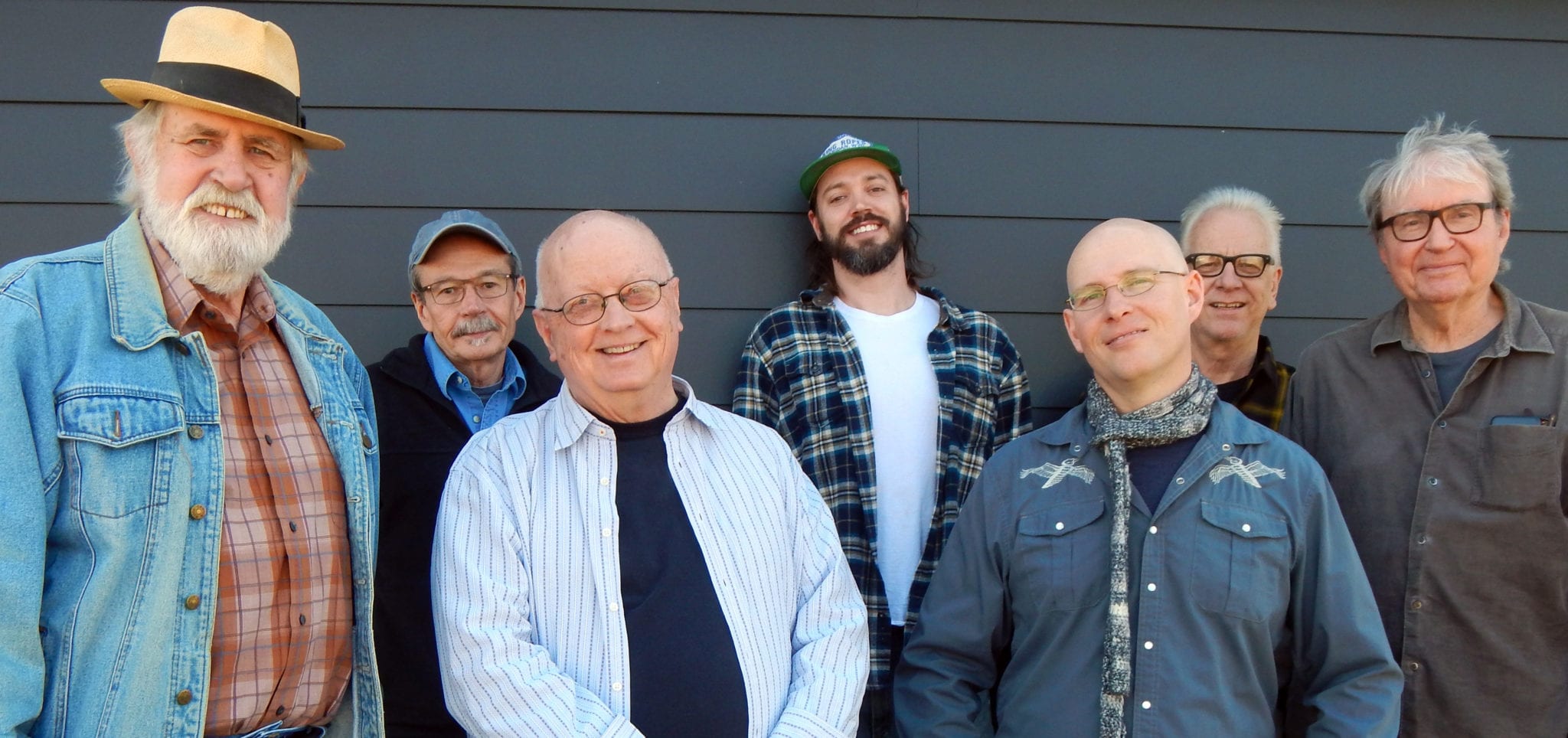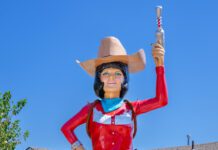For Tulsa rock ’n’ rollers, the mid-’70s were nothing less than pure gold. Hometown hero Leon Russell was back and firing off projects and ideas and recording sessions from his Church Studio base.
The clubs were chock-full of great musicians – some drawn to town by Russell and his entourage, and others who were homegrown, lucky and blessed enough to possess the talent needed to compete in a scene that might find Eric Clapton or George Harrison dropping by to take in the sounds.
This month’s column deals primarily with two of those artists and their brand-new collaboration, whose seeds were planted ’way back then. The newcomer, Casey Van Beek, arrived in T-Town around 1975 from his Southern California base; the other, Walt Richmond, was a Tulsa boy finding plenty of work then as a piano player and organist in several Tulsa-based groups. In one of his gig books from the time, Richmond wrote, simply, “K.C.” and “Magician’s,” indicating that he’d played with a guy named K.C. at the Magician’s Theater, one of the top local rock venues of the day.
“Yeah,” says Richmond with a chuckle, “I didn’t spell Casey’s name right. But I didn’t know him then.”
He also couldn’t have known that 45 years later, he would record and produce Van Beek’s first-ever solo disc, Heaven Forever, available online on Amazon and at other outlets. The official party for the CD, released by the Little Village Foundation, is set for April 23 at Tulsa’s Harwelden Mansion. Ticket information is available at thechurchstudio.com.
While Heaven Forever, credited to Van Beek and the Tulsa Groove, is Van Beek’s first solo release, it’s built atop a career that began some six decades ago. At age 5, Van Beek moved with his family from the Netherlands to the Los Angeles area, where he began studying classical piano. By the time he got to high school, he was playing bass in a “car-club band,” a group affiliated with young hot-rod enthusiasts.
“They used to have a lot of those out in California,” Van Beek says. “We started out doing instrumentals. It finally evolved into five of us, and we didn’t have any singer, so just by necessity I started singing.”
The breakthrough for that quintet, called the Vibrants, came when they got a steady job with a group of teen-oriented nightspots owned by Bob Eubanks, who later found national fame as a game-show host. Then, Van Beek says, “he was the No. 1 deejay in LA, and he had these clubs, with different partners, at different locations.”
The franchise was called the Cinnamon Cinder, and for the next five years, the Vibrants played for Eubanks at those clubs, primarily the Long Beach location.
“They didn’t have concerts in the ’60s hardly at all, so all of the [rock ’n’ roll] recording acts had to play clubs,” Van Beek says. “It was part of our job to back ’em, and it was quite a training ground for us. We backed Roger Miller, Jerry Lee Lewis, Glen Campbell, Larry Williams, Johnny ‘Guitar’ Watson, the Coasters, the Rivingtons, Kitty Lester, Dee Dee Sharp, Little Stevie Wonder – who was like 12 years old.
“We’d go in the back room and run over a bunch of songs with these guys for 20 minutes or a half hour or whatever, and then go out and do the show.”
Another band playing the Cinnamon Cinder circuit was Don and the Deacons, which included a guitarist, singer and songwriter named Don Preston. Ultimately, the Vibrants and Don and the Deacons merged into a group called Cotton Candy, and, when that project ended, Preston and Van Beek continued playing other engagements together.
Van Beek also spent considerable time working with former Righteous Brother Bill Medley on the Nevada club circuit, and even played several gigs with Linda Ronstadt and shared the stage with future Eagles members Don Henley and Glenn Frey. He was also in a group called Moccasin, signed to MGM Records. But, he says, the label “had the Iron Butterfly [band], and they went that way. So we were just kind of on our own on that record.”
Van Beek came to Tulsa to work on a record Preston was doing for Shelter Records (Preston and Russell had worked together since the early ’70s) and admits to being “kind of surprised” at what he found.
“I’d been playing country-rock in Moccasin, and I thought when I got out here I’d be doing some real country music and stuff,” he says. “And then I ran into the boys at places like Magician’s Theater, and they were playing everything but.”
He laughs.
“That was fine with me. It was great,” he says.
What he found instead was what many have labeled the Tulsa Sound, a now-classic style made famous by Tulsa’s J.J. Cale and played by, among others, Richmond and guitarist Steve Hickerson, who were then in a top-drawer Tulsa band fronted by Rockin’ Jimmy Byfield.
“To me, Byfield exemplifies the Tulsa groove,” Van Beek says. “That real low-key, cool-groove stuff. That’s the only difference I could tell between Tulsa and LA [music].”
As the years wore on, Van Beek and Richmond found plenty of work, both separately and together, with Richmond accompanying Rick Danko for three years and Bonnie Raitt for six. In the ’90s, Van Beek finally recorded some more country-rock when he and Richmond became founding members of the Tractors, the multiplatinum-selling group famous for the single “Baby Likes to Rock It” (co-written by Richmond and the Tractors’ Steve Ripley). Richmond went on to play with the likes of Cale and Clapton.
According to Richmond, Heaven Forever came about almost by accident.
“We didn’t know we were starting a record for Casey,” Richmond says. “I record every day anyway, and Casey was coming over, and we were just messing around. So we cut a couple of tunes and we thought, ‘Well, wait a minute – that’s pretty good.’ And we just kept doing it. It took 14 months.”
The turning point, he adds, was when he sent a couple of their songs to Mike Kappus, the well-known music figure who had managed Cale for three decades. (Richmond says of Kappus: “He’s just the nicest guy in the world.”)
Kappus not only liked what he heard but was in a position to do something about it. He’s a consultant for the Little Village Foundation, a California-based nonprofit record label, fueled by donations, that gives 100 percent of its proceeds to the artists. The foundation, headed by Grammy Award-winning musician Jim Pugh, funded the creation of 1,000 CDs, and Heaven Forever became a reality.
In addition to the participation of Richmond and Van Beek, the disc includes work by Byfield and Hickerson; guitarists Charles Tuberville, Ron Getman and Seth Lee Jones; multi-instrumentalist Jared Tyler; steel-guitarist Steve Bagsby; and saxophonist Steve Wilkerson.
Van Beek, Richmond, and Tuberville, together and separately, are responsible for writing seven of the 12 tracks, including the wry title cut, Richmond’s low-key meditation on the notion of an eternal afterlife. There’s also one called “Since You Said Goodbye,” written by the late Cale, whose spirit hovers benignly over the whole disc. That’s intentional.
“In everything I do, I’m always thinking about Cale,” Richmond says. “His records sounded the way I like things to sound. Not that I achieved it, but that’s my aim. That’s the reason I named the band the Tulsa Groove. That’s what the record is about. Every song on it is about the groove.”


























